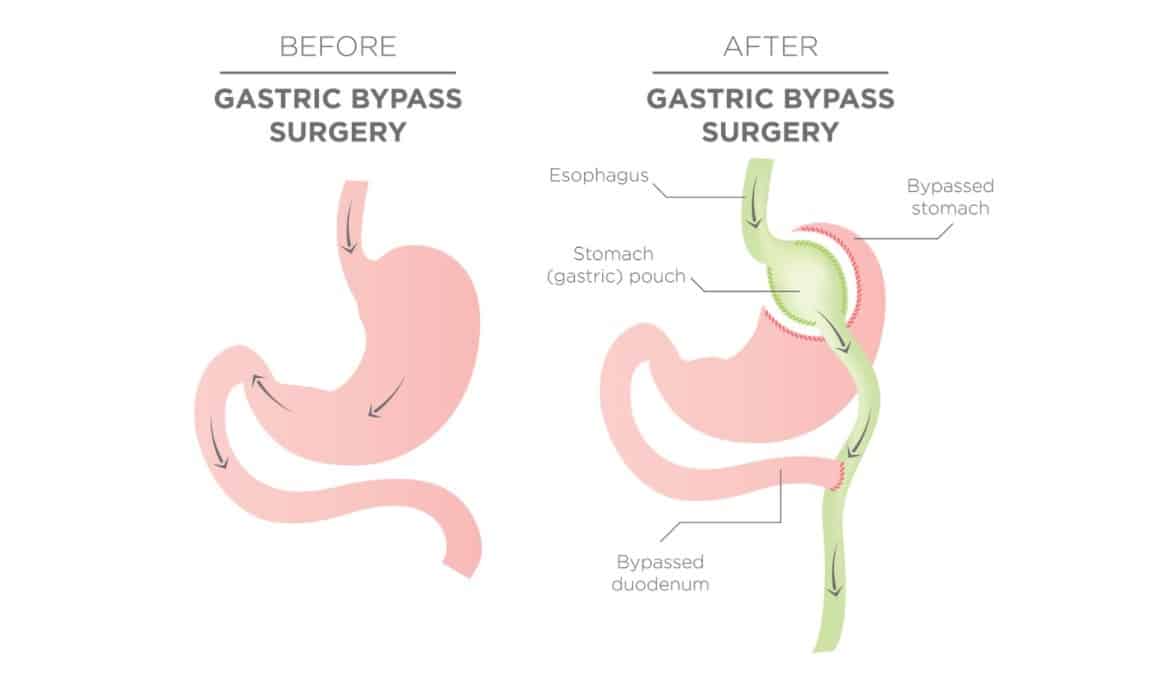Weight Regain after Weight Loss and Bariatric Surgery
By “Dr. Chris” Ibikunle
How often have you successfully lost weight and then plateaued and then started regaining weight? If you answered “Absolutely all the time”, then you are not alone. Weight regain is the bane of the existence of successful weight loss and has resulted in a lot of people abandoning their weight loss goal.
Here I’ll try to explain in my limited knowledge how to combat this problem and how to win.
First, let’s try to understand why our body seems to want to regain lost weight In order to explain this we will understand a concept called the metabolic set point. A setpoint is the weight range in which our body is programmed to function optimally. Set point theory holds that one’s body will fight to maintain that weight range. When you go below your body’s natural set point, both appetite and metabolism adjust to try to return us to our set point.
Essentially when we’ve been higher weight for a prolonged period of time our body tends to adapt to this state and creates a hormonal and systemic environment to sustain and maintain this weight but when we try to lose weight we are essentially fighting against as established system hence when we successfully lose weight our body tends to want to return to the original metabolic setpoint and weight.
Researchers have estimated that on average, it takes someone approximately 3 to 5 years to effectively lose weight, maintain the weight loss, and enable their body to adapt to a new metabolic set point. Additionally, the more time we have spent at a higher weight, the longer it will take for the metabolic set point to be lowered.
So what steps can we take to reset our metabolic set point during and after successful weight loss?
Step 1 Consistency
We have to create a 3 to 5 year weight-loss plan and stick to it. I know it’s a lot harder to do than it sounds but it’s doable. If genetics drive our weight level, is the desire to achieve sustained weight loss hopeless? It depends on your current weight and your goals. Despite the healthiest diet and the most active lifestyle, some body types are just “thicker” by nature. On the other hand, obesity (BMI of 30 or above) is a serious problem that should be addressed.
Step 2 Lifestyle
It’s always recommended to reflect on one’s lifestyle, specifically eating well and staying active. Diet and physical exercise contribute to weight fluctuations even if they are not the sole cause of weight regain.
Step 3 Medication
There are five FDA-approved prescription medications for weight loss. These medications function in different ways. Some help you feel less hungry, while others make it more difficult for your body to absorb fat from food. Weight-loss medications work best when combined with lifestyle changes, such as regular exercise and a healthy diet. Weight Regain after bariatric surgery. Even though bariatric procedures fundamentally change the way your body functions, which changes your set point is very common to experience weight regain after these operations.
Among bariatric surgeries, the Roux-en-Y gastric bypass (RYGB) procedure has been the gold standard until it recently lost its top spot to a newer, less invasive procedure known as sleeve gastrectomy. But even as RYGB procedures become less common, there are many post-RYGB patients who, despite having lost weight in the first few years following surgery, are seeing significant weight regain eight-to-ten years later. The average person who undergoes gastric bypass will eventually regain 20 to 30 percent of the weight they initially lost. About a third of patients will gain back nearly all of their lost weight.
It’s common to gain the weight back after gastric bypass/sleeve surgery
People who regain weight after bariatric surgery often experience a range of negative emotions, such as disappointment, shame, or frustration. Yet since studies show that it’s common to regain weight, this should be viewed not as a personal failure, but rather a medical reality. This problem is quite common after gastric bypass, so you’re not alone. We know that bariatric patients will gain some of the weight back long-term, and we can work together to help you lose the weight again.
Weight regain is often related to the anatomy of a post-RYGB patient
Gastric bypass surgery changes the anatomy of the stomach and small intestine. The surgeon connects the stomach to the second part of the small intestine during surgery. They refer to this new connection as a ‘gastrojejunal anastomosis’ or an ‘outlet.’

Minimally invasive options for post-RYGB patients experiencing weight gain
Bariatric surgeons rarely recommend a second surgery after RYGB, as repeat procedures may carry risks. Fortunately, it’s not necessary to have another surgery to treat weight regain because there are many options availableto post-RYGB patients who are struggling with their weight, including endoscopic procedures, medication and lifestyle adherence.
Endoscopic Procedures
The goal of endoscopic procedures is to shrink the size of the outlet. Shrinking the outlet induces weight loss and may also affect hormone levels in a way that reduces hunger. Post-RYGB patients can have outlets that range from 20 to 40 millimeters; the target size for the outlet is eight-to-ten millimeters.
An endoscopic procedure is a great option for people who don’t want to undergo another weight-loss surgery. These procedures are quick and minimally invasive, performed through one’s mouth. They are also reproducible, so if you start gaining again, you can return for a follow-up procedure.
Complications are few and rare. Anti-acid medications can counter bleeding. The outlet can be reversed if it becomes too small.
IBI Healthcare Institute regularly performs three endoscopic procedures to treat weight regain. The choice of procedure is a combination of patient preference and physician recommendation, and your doctor will work with you to find the most appropriate procedure.
1. Argon Plasma Coagulation (APC)
During an APC procedure, a laser is applied to the outlet, causing it to shrink and become firmer. The procedure takes about 10 minutes and the patient returns home the same day. Usually, a few visits are necessary: We repeat the procedure every three months until we reduce the outlet size to eight-to-ten millimeters.
Early data shows that patients who undergo APC lose approximately five-to-eight percent of their initial weight after one year.
2. Transoral Outlet Reduction (TORe)
A TORe procedure involves placing stitches around the outlet to reduce its size. The procedure takes about an hour. TORe helps not only with weight loss, but also with issues that frequently accompany obesity, including hypertension, diabetes and high cholesterol.
Data shows that after a year, patients lost 8.4 percent of their initial weight with its efficacy lasting up to at least 5 years.
3. Plication
Plication involves folding the tissues around the outlet inward to reduce its size. The concept of plication is similar to suturing, but the devices differ. Only the BWH’s Endoscopy Center currently performs endoscopic gastric plication in the US for weight regain after RYGB/LSG.
Ongoing studies show that in 6 months patients lost on average 10.7 percent of their initial weight.
GSC evaluates patients for adherence to lifestyle changes before considering an endoscopic procedure. We only want to perform a bariatric procedure on patients who are committed to maintaining a healthy lifestyle afterward. Patients must commit to eating well and exercising alongside the performance of an endoscopic procedure.
The multidisciplinary approach at GSC
IBI Healthcare Institute takes a multidisciplinary approach to bariatric surgery and endoscopic treatments at our centers all over Metro Atlanta.
We all work together as a team. We evaluate our patients before and after the procedures in the bariatric endoscopy clinic. Additionally, we work closely with our bariatric surgeons, nutritionists, psychologists and medical bariatrician colleagues.
Weight regain after RYGB/LSG is common and many studies are starting to reveal why. We emphasize that people should be aware of the resources available to them. If you suffer from weight regain, please seek advice. Don’t suffer through it alone. A lot of people have this problem and we have effective and minimally-invasive solutions to treat it.









